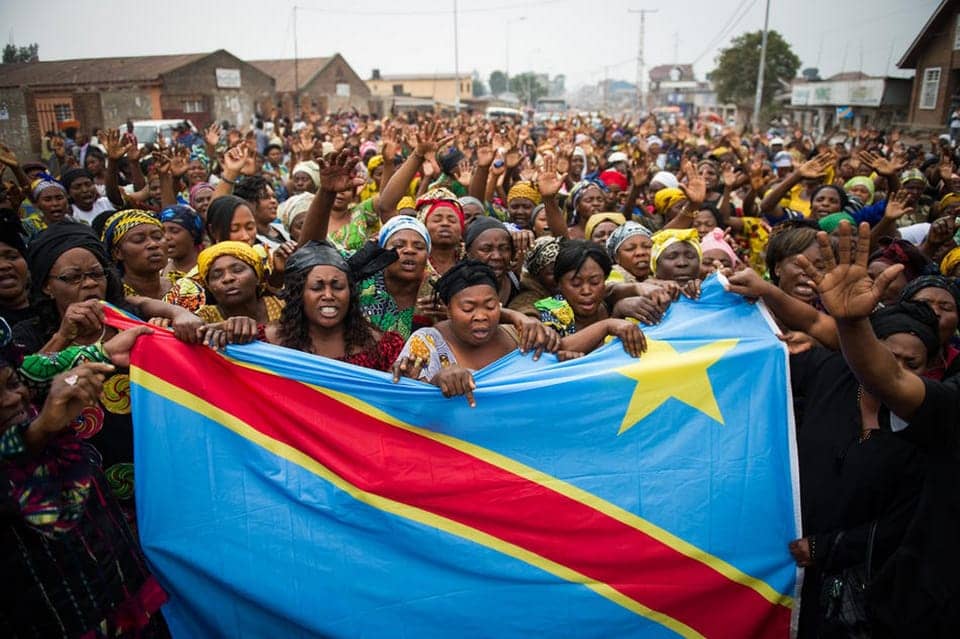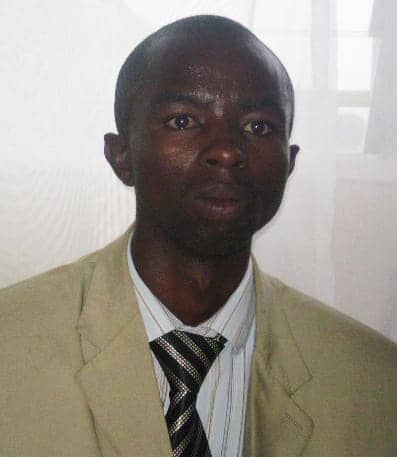by Ann Garrison
KPFA Evening News, broadcast Sept. 1, 2012

KPFA/Ann Garrison: In April, Victoire Ingabire called her defense to a halt, saying that she could not get a fair trial in Rwanda. The Rwandan prosecution then asked that she be sentenced to life in prison and the verdict was scheduled to be heard on June 29. On that date, however, it was rescheduled for Sept. 7.
Rwandan President Paul Kagame’s military dictatorship had, in the month of June, suffered a torrent of bad press and damaged diplomatic and donor relations when a U.N. report documented its support of the M23 militia in eastern Congo. The militia had resumed the war in eastern Congo, also in April, and once again with catastrophic human consequence.
This week the Democratic Republic of Congo asked the U.N. to sanction Rwandan Defense Minister James Kaberebe, Chief of Defense Staff Charles Kayonga and Gen. Jacques Nziza, a military adviser to President Paul Kagame, whom the U.N. report accused of being “in constant contact with the M23 militia in Congo.”
Ingabire has steadfastly maintained that there were extremists on both sides, Hutu and Tutsi, in the Rwandan Civil War. When Kagame’s army invades Congo, however, its invariable excuse is that it must hunt down Hutu militias responsible for the genocide against the Tutsi and protect a Congolese Tutsi minority.

Professor Allan Stam: From 1998 to 2000, the RPF [Rwandan Patriotic Front] gets control of the eastern Congo, all the way from Kisangani, or what was formerly known as Stanleyville. This is the last navigable point on the river coming up from the Atlantic Ocean. As the crow flies, Kisangani is 470 miles from Kigali. By the roads, it’s about 800 miles.
We interviewed the defense minister and the solicitor general of the Rwandan Supreme Court, and Christian and I asked these guys, “What are you guys doing in Kisangani? It’s kinda far. It’s sorta like going from Washington, D.C., to St. Louis.”
And he said, “Well, we have security concerns! There are Hutu militias in the jungle!”
And we said, “Yeah, y’know, we went there. And we saw ‘em. But, you don’t have to go to Kisangani to find them. They’re five miles over the border. So why are you guys 500 miles into the Congo?”
And there’s this long pause, and the solicitor general – he really lost it. And he says, “I went to the University of Chicago. I have a master’s degree in international relations. I’ve read Hans Morgenthau. I’m a realist. I know that the United States doesn’t give a – BLEEP – about what we do in this country, in this part of the world. We’re gonna do what we think we need to do to guarantee our security and wealth.”

And I was like, “Wow. This is great. I can’t believe this guy just admitted to occupying the eastern THIRD of AFRICA, to enrich him and his buddies.”
KPFA/Ann Garrison: That was University of Michigan Professor Allan Stam. Stam and his co-author and researcher, Notre Dame professor Christian Davenport, are persona non grata in Rwanda, where their passports have been revoked.
Stopping the next Rwanda Genocide has become an ideological pillar of U.S. foreign policy, despite the fierce dispute about its true history and its consequence in Congo. After NATO bombarded Libya, backing the overthrow and summary execution of Muammar Gaddafi, U.N. Ambassador Susan Rice traveled first to Libya, then Rwanda, to say that the U.S. got it right this time.
For Pacifica, KPFA and AfrobeatRadio, I’m Ann Garrison.
San Francisco writer Ann Garrison writes for the San Francisco Bay View, Global Research, Colored Opinions, Black Star News, the Newsline EA (East Africa) and her own website, Ann Garrison, and produces for AfrobeatRadio on WBAI-NYC, Weekend News on KPFA and her own YouTube Channel, AnnieGetYourGang. She can be reached at ann@afrobeatradio.com. If you want to see Ann Garrison’s independent reporting continue, please contribute on her website at anngarrison.com.





